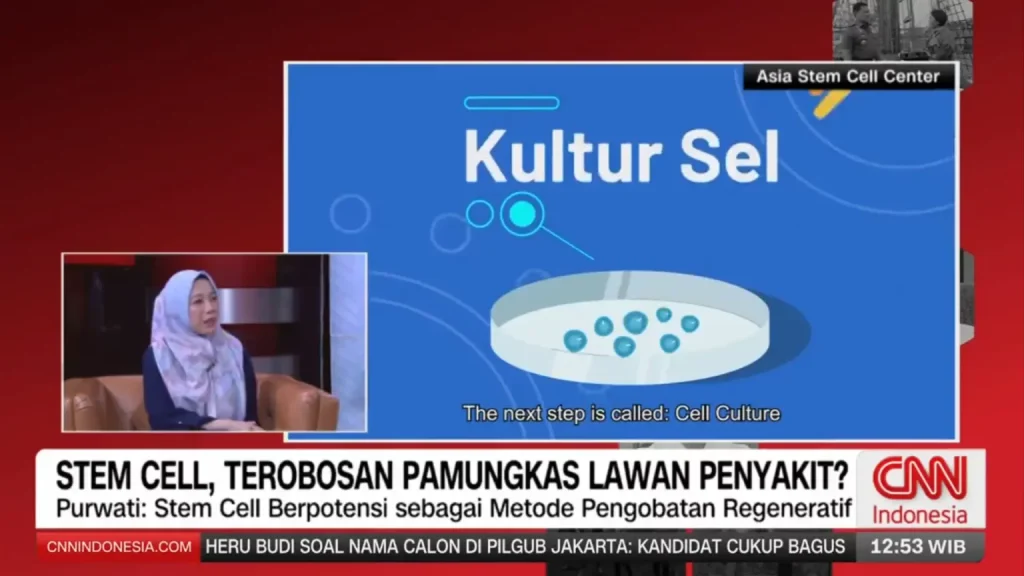
Dr. Purwati, dr., SpPD-KPTI, FINASIM, the Head of the Stem Cell Research and Development Center at Universitas Airlangga (UNAIR), appeared on the Insight with Desi Anwar program on CNN Indonesia. During the program, Purwati explained the advancements in research and the use of stem cells to combat various diseases.
Stem cells are cells that have the ability to self-renew and differentiate. This capability allows for the regeneration of damaged tissues or organs. Additionally, stem cells secrete various types of proteins and cytokines that can activate other inactive stem cells. Thus, stem cells hold significant potential for the recovery and treatment of various diseases, especially degenerative diseases.
The Use of Stem Cells
Purwati acknowledged that initially, research and use of stem cells were limited to degenerative diseases such as bone problems, Parkinson’s disease, heart failure, kidney failure, liver cirrhosis, and others. However, research has advanced. Now, stem cells have shown effectiveness in treating autoimmune diseases and cancer.
Regarding the treatment of autoimmune diseases, Purwati explained that these diseases involve the immune system mistakenly recognizing the body’s tissues as threats and attacking them. In addressing this, stem cells can regulate and control the immune system.
“Stem cells can modulate T cell and B cell responses, directing them towards tolerance of foreign substances. This reduces the likelihood of attacks on healthy tissues,” said Purwati.
Moreover, stem cells also play a role in cancer treatment, one method being through dendritic cell vaccines. These vaccines are derived from the development of hematopoietic stem cells, which can activate the immune system to target and destroy cancer cells. In addition to dendritic cells, stem cells can also modify T cells to recognize and attack cancer cells. Stem cells also contribute to the recovery and regeneration of bone marrow damaged by cancer treatments.
Stem Cell Regulations
The government has implemented various regulations to support stem cell services and research. The current regulation is the Minister of Health Regulation No. 32 of 2018 on the Implementation of Stem Cell and/or Cell Services.
Purwati revealed that there are currently 14 healthcare facilities authorized to produce stem cells. Other healthcare facilities can also provide stem cell services by networking with these authorized facilities. This effort aims to expand the use of stem cells.
In line with the rapid advancement of research and technology, the Ministry of Health is planning regulatory changes. These changes aim to make it easier for researchers and the public to use stem cells. Purwati is also involved in formulating the policies related to stem cells.
“I am involved in formulating these policies as a representative of the Committee for the Development of Stem Cells and Tissues. We are also working in synergy with the Food and Drug Agency (BPOM) in the process of forming new regulations,” said Purwati.
Researchers and practitioners significantly influence the policy formulation process. They can provide solid scientific evidence to support policy-making decisions. Furthermore, this ensures that the policy formulations are relevant to real-world conditions based on research findings.